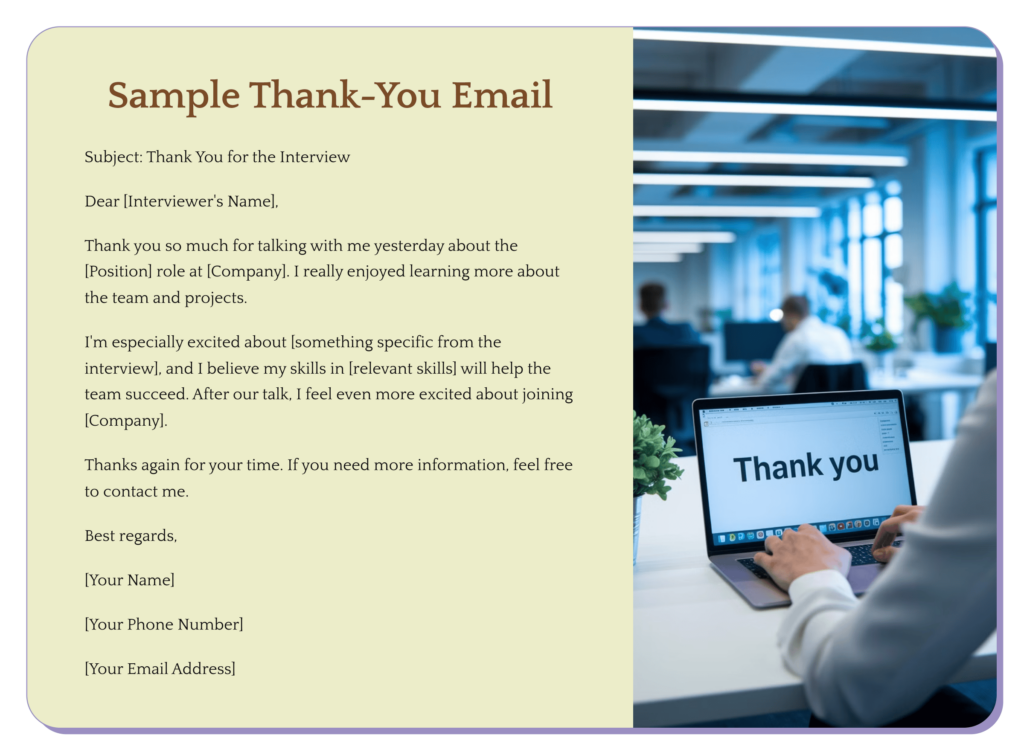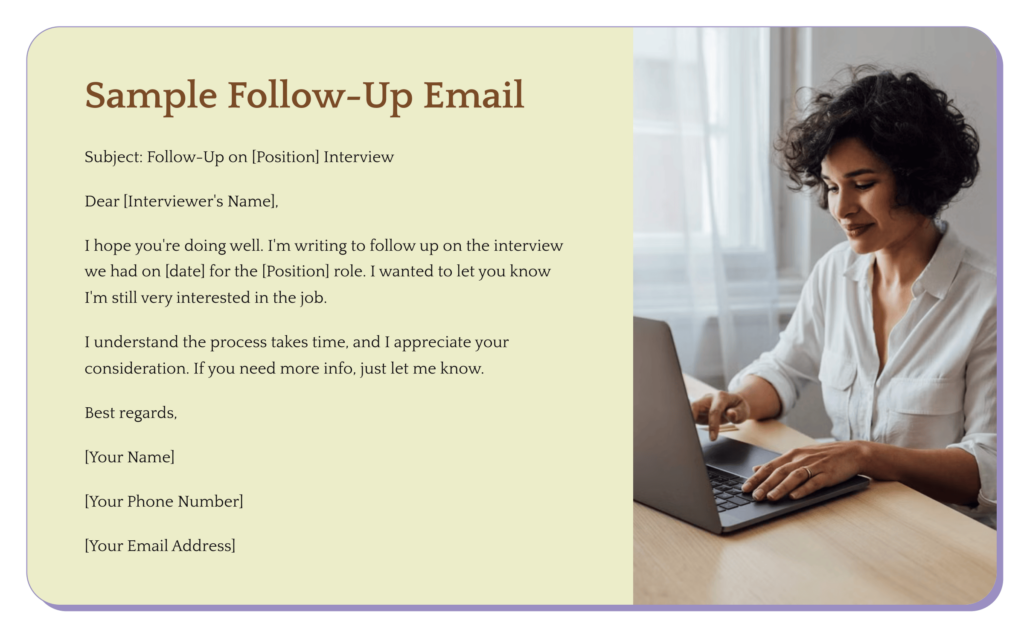

Quick Summary
Are you preparing for a finance interview in 2025’s competitive job market? Finance interviews test more than just your technical skills. They also evaluate your analytical thinking, problem-solving skills, and grasp of current industry trends. Employers want candidates who can clearly discuss financial concepts, interpret data, and offer solid business recommendations. Whether you’re aiming for a job in investment banking, corporate finance, accounting, or economic analysis, preparing for common and tough finance interview questions is essential.
This guide gives you the most relevant finance interview questions, expert advice for crafting strong answers, and real-world examples to help you shine. Get ready to build your confidence and secure your dream finance job with proven strategies and current insights.
Finance interview questions are important for a few key reasons:
Let’s start with some frequent finance interview questions and answers to clear the basics:
For this common opening finance interview questions, focus on your genuine interest in the field. Address current financial markets, and discuss the role of finance in businesses. Tell any finance experience or education you have. And say why those finance skills appeal to you and align with the role.
For these types of basic finance interview questions, discuss financial news sources or professional sites you follow regularly. Mention reading the Wall Street Journal, Bloomberg, or Financial Times. Share any newsletters, online courses, or professional groups you’re part of to stay current. Emphasize being dedicated to continuous learning in finance.
Walk through a specific example that shows off your financial analysis skills to tackle these finance related interview questions. Explain the purpose and process step-by-step. Share any tools you use like Excel, financial modeling, etc. Discuss results and key takeaways. Be sure to highlight achievements like saving costs, identifying trends, or making recommendations.
Demonstrate your grasp of essential financial statements – the income statement, balance sheet, and cash flow statement. Explain what each one measures and how they interrelate. For example, the income statement’s net profit gets added to the balance sheet’s retained earnings. Cash flows also impact the balance sheet. Giving a clear, concise response displays your accounting knowledge.
In finance interview questions, candidates are often asked about working under pressure due to the industry’s fast-paced nature. To answer effectively, provide a real example where you met a tight deadline, showcasing skills like time management, problem-solving, and composure. Emphasizing your ability to handle challenges demonstrates your readiness for demanding finance roles.
If you’re applying for an entry-level finance role, expect basic finance interview questions to assess your foundation in key concepts:
In finance interview questions, candidates are often asked to explain key financial metrics. Gross profit is calculated as revenues minus the cost of goods sold, reflecting a company’s core profitability. Net profit, on the other hand, is derived by subtracting operating expenses like rent, payroll, and other business costs from gross profit. Providing a clear and concise explanation of these concepts demonstrates a strong grasp of fundamental finance principles.
Working capital refers to a company’s current assets like cash, accounts receivable and inventory minus its current liabilities like accounts payable and short-term debt. Explain how it measures a company’s liquidity or ability to cover short-term obligations. The higher the working capital, the more financially stable the business.
A balance sheet is a snapshot of a company’s financial health at a specific moment in time. Explain that it shows assets like cash, inventory, and property balanced against liabilities like debt and expenses owed. Plus, equity like shareholder funds. Highlight how the balance between assets and liabilities/equity gives insight into the company’s capital structure. These basic finance interview questions for freshers give more strength to do well in the future.
Clarify the break-even point is where a company’s revenues equal its costs, so there is no profit or loss.
Explain the formula: Fixed Costs / (Revenue per Unit – Variable Cost per Unit).
Showing step-by-step calculation ability is key. You might also discuss how lowering fixed costs or increasing revenue per unit can improve the break-even point.
Walk through the three sections of a cash flow statement – Cash from Operating Activities, Investing Activities, and Financing Activities. Explain briefly what each section measures. This displays your understanding of how changes in assets and capital flows through a business.
If you’re fresh out of college, expect interviewers to probe your ability to transition your academic knowledge into real-world finance. Common finance interview questions for freshers may include:
Again, focus on your genuine interest in the field. Mention if you enjoyed or excelled at finance, accounting or math courses. Share any hands-on experience like finance internships, academic projects or extracurricular activities. Convey your enthusiasm to start applying your education in a full-time role.
These finance interview questions assures the interviewer that you understand the roles in finance are often demanding. Share your strongest skills like analytical thinking, using financial software, collaborating on projects, multi-tasking and time management. Highlight any tough college assignments or activities you balanced to exhibit your work ethic.
To tackle these type of finance interview questions, highlight your major subject, relevant projects and other academics that prepared you for a finance career. Demonstrate a strong grasp of accounting, economics, statistics and other hard skills. Mention transferable skills like Excel modeling. Explaining your finance foundations will build the interviewer’s confidence in your abilities.
This is your chance to showcase both hard and soft skills learned in school. Explain how you can analyze financial data, use reporting tools, understand business metrics and implement models. Also call out soft skills like communication, teamwork, and critical thinking. Show you have the well-rounded toolkit to succeed in the job.
You can pass the finance interview questions by simplifying explanations for non-finance colleagues or clients. Share strategies like using analogies, avoiding jargon, aligning it to business operations, and giving concrete examples. Demonstrate confidence in explaining concepts in understandable ways while retaining core details.
For corporate finance roles, interviewers will expect deeper knowledge of accounting, investment, valuation, and other complex concepts. Common corporate finance interview questions include:
Clarify that equity financing means raising funds by selling company ownership shares or stock to investors. Debt financing means taking on debt like bank loans that must be repaid with interest. Compare how equity relinquishes ownership control versus debt increases financial risk. A concise explanation of this type of corporate finance interview questions shows you grasp financing options.
Convey your understanding that money available now is worth more than future earnings because it can be invested to grow. Discuss core time value of money ideas like present and future value calculations, discount rates, inflation, and compounding returns. Demonstrate your comfort applying TVM concepts used heavily in corporate finance roles.
To face-off the finance interview questions, share key indicators you would analyze, like profitability, liquidity, solvency, efficiency, and growth ratios like ROA, current ratio, debt-to-equity, etc. Mention reviewing financial statements like the income statement, balance sheet, and cash flow statement. Discuss both quantitative metrics and qualitative factors like management strength, market position, and macroeconomic conditions. Showcase your multi-faceted approach.
These type of corporate finance interview questions shows your ability in a critical situation. For a justified answer, share a real example that highlights your judgment abilities. Explain the situation, how you analyzed data and weighed options. Describe your decision process and criteria. Share the final decision and outcomes such as improved efficiency or savings. Demonstrate how you make thoughtful calls even under ambiguity.
All finance roles involve risk identification and mitigation. Discuss core principles like diversifying investments, limiting credit exposure, matching asset and liability maturities, and balancing risk-return tradeoffs. Cite examples like hedging currency or interest rates. Showcase your skills in managing risk and maximizing returns.

If you’re applying for a trade finance role, expect detailed questions about documentation, international transactions, supply chain flows, and applicable regulations:
Explain how finance interview questions often cover trade finance, which includes financing for domestic and international trade as well as related services like credit insurance and factoring. Discuss its key role in facilitating the movement of goods and payments between exporters and importers. Share current and projected growth statistics to exhibit your industry knowledge.
Demonstrate your expertise by walking through the full process step-by-step. Cover key parties, documents, and flows involved in letters of credit. Explain how LC’s facilitate trust and reduce payment risks between distant buyers and sellers. Show off your technical know-how.
In finance interview questions, risk mitigation is a key focus. Highlight strategies like securing collateral, assessing creditworthiness, and monitoring financial risks. For complex deals, discuss due diligence methods such as site visits, compliance audits, and document reviews. Demonstrating these practices proves your ability to manage trade finance risks effectively.
Cite any specific experience with major regulations like CISG, UCP 600, and INCOTERMS that standardize global trade. Discuss coursework or research projects related to trade compliance. Demonstrate your commitment to staying current on policies from the WTO, ICC, and other bodies that shape cross-border commerce.
Answering these types of trade finance interview questions highlight common pain points like language barriers, cultural differences, FX swings, delays in the flow of goods or payments, and evolving digitization. Share examples of how you would address those challenges if hired, like improving communication, expanding collections methods, utilizing APIs, blockchain and AI to enhance operations, etc. Position yourself as ready to tackle real issues.
Here are Examples using the STAR method for finance interview questions:
Situation: At my last job, I had to analyze a big financial report because a client was losing money.
Task: My task was to figure out why they were losing money and how they could fix it.
Action: I looked at their sales, costs, and profits, compared their numbers to other companies, and spoke to important people in the company.
Result: I found out one product wasn’t selling well, which was causing the loss. I suggested they focus on better-selling products and lower their supplier costs. After they followed my advice, their revenue went up by 15% the next quarter.
Situation: When we were making the yearly budget, a system upgrade caused a delay, leaving us with only two weeks to finish everything.
Task: I needed to make sure the budget was done correctly and on time, even with the short deadline.
Action: I set up daily team meetings to divide the work and stay organized. We used a shared document to track progress and worked closely with other departments to get the data we needed.
Result: We finished the budget on time, and management was impressed with the accuracy. Our team was praised for how well we handled the pressure.
Situation: At my previous job, I noticed we were paying a lot for outside financial consultants.
Task: My job was to find a way to save money without losing the quality of the financial advice.
Action: I suggested we hire a full-time financial analyst instead of using consultants. This would save money and give us faster, more customized advice.
Result: The company hired an analyst, and we saved 30% on consulting fees. We also got better, quicker financial advice, which helped us make smarter decisions.
With preparation, you can confidently take on any finance interview questions. Strong finance interview preparation makes all the difference, demonstrating your skills and potential to hiring managers. Use this guide to research expected questions and practice your responses effectively.
Finance interview questions vary depending on the role, whether it’s entry-level, corporate finance, investment banking, or trade finance. Focus on mastering the relevant concepts and skills required for the specific position. Research the company’s business model and industry trends to tailor your answers accordingly.
Finance interview questions typically include both technical and behavioral interview questions. Be prepared to solve financial modeling problems, valuation methods, and accounting principles. Additionally, expect questions that assess your communication skills, teamwork, and problem-solving abilities.
Rehearse your responses aloud to ensure clarity and confidence. Keep your answers structured, concise, and engaging. Use the STAR method (Situation, Task, Action, Result) to provide well-organized responses to behavioral questions.
Ask colleagues, mentors, or industry professionals to conduct mock interviews with finance interview questions. Their feedback will help refine your answers, improve delivery, and identify any weak areas that need more polish. Simulating real interview conditions can boost confidence and reduce nervousness.
Employers seek candidates who are not only technically skilled but also passionate about finance. Showcase your enthusiasm, problem-solving mindset, and ability to contribute to the company. Demonstrate how your skills and experiences make you the ideal fit for the role.
Here’s an even simpler version explaining why communication, confidence, and professionalism are important in finance interview questions:
By focusing on communication, confidence, and professionalism, you can excel in finance interview questions and leave a strong, positive impression. Demonstrating these qualities helps showcase your expertise, adaptability, and readiness for the role, increasing your chances of success in the competitive finance industry.
Here’s a version in how to follow up after a job interview:


Following up after an interview questions shows that you’re professional, respectful, and still very interested in the job. It can help you stand out and improve your chances of getting hired.
2. “The Intelligent Investor” by Benjamin Graham
3. “Financial Modeling” by Simon Benninga
4. “Nudge” by Richard H. Thaler and Cass R. Sunstein
5. “The Basics of Bitcoins and Blockchains” by Antony Lewis
1. “15 Best Finance Books for Financial Professionals” by U.S. News
2. “Understanding High Finance” by Five Books
These resources will help you learn more about finance, get ready for job interview questions, and understand money topics better.

Here’s an even simpler version of the recommended books and articles about finance:
2. “The Intelligent Investor” by Benjamin Graham
3. “Financial Modeling” by Simon Benninga
4. “Nudge” by Richard H. Thaler and Cass R. Sunstein
5. “The Basics of Bitcoins and Blockchains” by Antony Lewis
2. “15 Best Finance Books for Financial Professionals” by U.S. News
3. “Understanding High Finance” by Five Books
When you’re getting ready for a finance interview, you can expect a mix of questions about different topics.
By focusing on these areas, you’ll be ready for your finance interview!
Excelling in finance interviews needs a mix of technical skills, clear communication, and awareness of the real world. Prepare for common questions, practice with real scenarios, and keep up with financial news and trends to show your value to potential employers. Remember to support your answers with data, explain your reasoning clearly, and express your enthusiasm for the finance industry.
Continuous learning, networking, and getting feedback from mentors will also improve your chances of success. In the evolving job market of 2025, well-prepared candidates who combine knowledge with confidence and flexibility will stand out and land top finance roles.
Typical finance interview questions focus on accounting, financial analysis, ratios, and market knowledge.
Example: “Can you explain the difference between NPV and IRR?”
Tip: Review basic finance formulas and concepts before the interview.
They test your technical knowledge, problem-solving skills, and how well you can apply concepts in real-life situations.
Example: “How would you evaluate a company worth investing in?”
Tip: Always link theory with real business situations.
Revise accounting, corporate finance, and investment basics. Keep track of current financial news.
Example: Prepare an answer for “How does inflation impact investment decisions?”
Tip: Read financial newspapers or apps every day to stay updated.
You may encounter questions about valuation, risk analysis, financial modeling, and market instruments.
Example: “Walk me through a DCF valuation.”
Tip: Practice explaining difficult concepts in straightforward terms.
Yes, in addition to technical skills, recruiters assess teamwork, leadership, and decision-making.
Example: “Tell me about a time you dealt with a financial error while under pressure.”
Tip: Use the STAR method (Situation, Task, Action, Result) for clear answers.
Freshers face more theory-based questions. Experienced candidates are asked about real case studies and strategies.
Example: Fresher: “What is working capital?” Experienced: “How would you reduce working capital for a company?”
Tip: Adjust answers to match your experience level.

Authored by, Rashmi Jaisal
Career Guidance Expert
Rashmi is a Content Strategist who creates research-driven content focused on education, higher education policy, and online learning. She brings an energetic blend of expertise in technology, business, and literature, sparking fresh perspectives and engaging narratives. Outside of work, she’s a passionate traveler who enjoys journaling and curating visual inspiration through Pinterest boards.
Editor's Recommendations
Chegg India does not ask for money to offer any opportunity with the company. We request you to be vigilant before sharing your personal and financial information with any third party. Beware of fraudulent activities claiming affiliation with our company and promising monetary rewards or benefits. Chegg India shall not be responsible for any losses resulting from such activities.
Chegg India does not ask for money to offer any opportunity with the company. We request you to be vigilant before sharing your personal and financial information with any third party. Beware of fraudulent activities claiming affiliation with our company and promising monetary rewards or benefits. Chegg India shall not be responsible for any losses resulting from such activities.